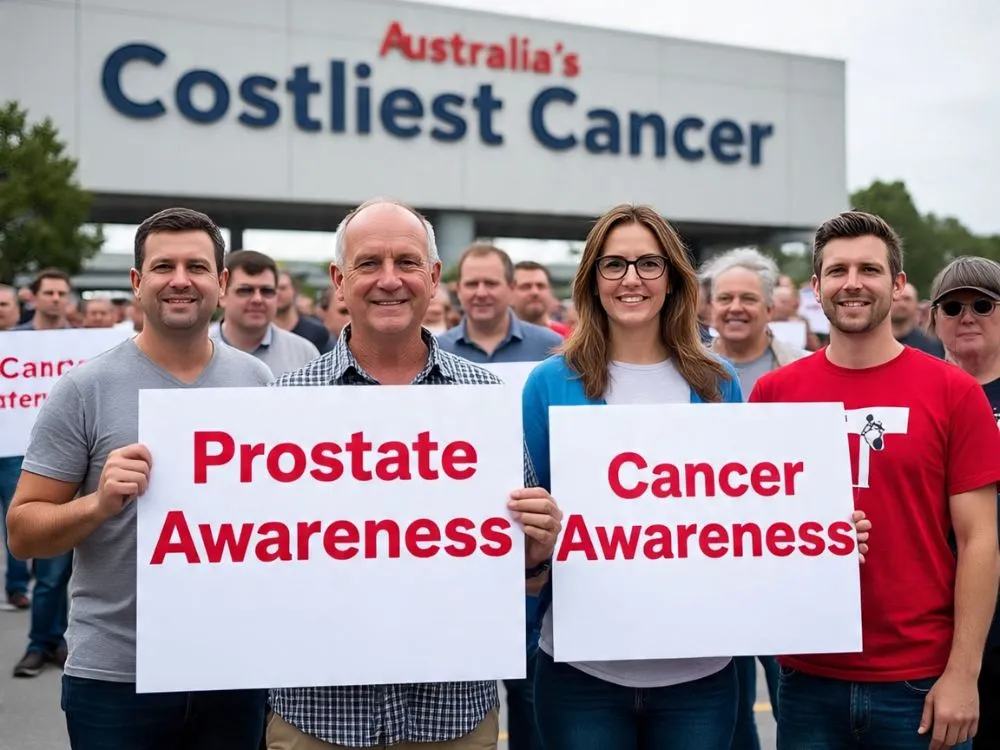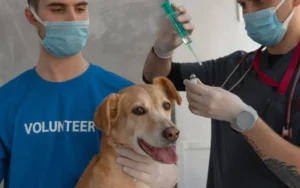Prostate cancer has quietly become one of the most pressing health challenges in Australia. Affecting tens of thousands of men each year, it’s not just a personal battle for patients and families — it’s a costly national issue. Health officials now refer to it as Australia’s most expensive cancer, both in human and financial terms. As awareness grows, a nationwide campaign is mobilising experts, communities, and everyday Australians to take action. This is a fight Australia can’t afford to ignore.
Table of Contents
ToggleWhy Prostate Cancer Demands Urgent Attention
Prostate cancer ranks as the most commonly diagnosed cancer among Australian men. According to the Australian Institute of Health and Welfare (AIHW), over 25,000 men received a prostate cancer diagnosis in 2022. One in six Australian men will face this disease in their lifetime. Though the survival rate has improved — with 95% of men surviving at least five years after diagnosis — the toll remains heavy.
More concerning, prostate cancer now costs Australia more than any other cancer. A 2021 report by the Prostate Cancer Foundation of Australia (PCFA) revealed that prostate cancer costs the health system over $1.35 billion annually, eclipsing the economic impact of breast, lung, and bowel cancers. Costs include hospital admissions, long-term hormone therapies, imaging, surgical procedures, and ongoing care for survivors dealing with complications such as incontinence and erectile dysfunction.
Inside the National Campaign for Prostate Cancer Awareness
To confront these challenges, Australia launched a multi-faceted campaign focused on prostate cancer awareness, early detection, improved access to care, and groundbreaking research. The campaign involves collaboration between federal and state governments, non-profits like PCFA, medical experts, and grassroots organisations across the country.
1. Promoting Early Detection Through Screening
Early detection remains a cornerstone of the campaign. While Australia does not have a national prostate cancer screening program like those for breast and cervical cancer, medical leaders encourage informed testing. This involves blood tests for Prostate-Specific Antigen (PSA) levels and digital rectal examinations for men aged 50 and over — or 40+ for those with a family history.
“We’re urging Australian men to have conversations with their GPs about prostate health,” says Associate Professor Jeremy Grummet, a leading urologist in Melbourne. “Detecting prostate cancer early vastly improves treatment outcomes and reduces long-term costs.”
In regional areas, mobile health clinics have begun visiting towns to offer free PSA testing and raise awareness among men who might not regularly see a doctor.
2. Boosting Research and Treatment Innovation
The government has increased funding for prostate cancer research, with over $20 million allocated through the Medical Research Future Fund since 2019. Researchers focus on improving diagnostic tools, such as MRI-guided biopsies, and personalising treatments through genomic testing.
A significant advancement is PSMA PET-CT scanning, an innovative imaging method that assists physicians in identifying even the tiniest remnants of prostate cancer. Australia became one of the first countries to subsidise this cutting-edge test through Medicare.
“We have moved away from a one-size-fits-all strategy for treating prostate cancer,” explains Dr. Vanessa Estall, a medical oncologist involved in clinical trials. “New technologies are changing how we detect, manage, and monitor the disease.”
3. Supporting Rural and Indigenous Men
Prostate cancer affects all men, but access to care varies dramatically across Australia. Men in rural and remote areas face longer wait times, fewer specialists, and limited treatment options. For Indigenous men, the challenges multiply due to cultural barriers, lower screening rates, and higher mortality.
To bridge this gap, PCFA and partner organisations launched specialised outreach programs in regional areas and Indigenous communities. These include culturally tailored education campaigns, nurse-led telehealth services, and support groups designed to overcome stigma and mistrust of the healthcare system.
Real Stories Fuel Real Change
Public figures and survivors have played a pivotal role in driving prostate cancer awareness. Well-known Australians like cricket legend Rod Marsh and media personality Barry Du Bois have openly shared their battles, encouraging others to seek early testing and support.
“I ignored the symptoms for too long,” says Mark, a 59-year-old survivor from Dubbo. “Once I got diagnosed, everything moved fast. The support I received saved my life. Now I tell every mate over 50 to get checked — no excuses.”
Such voices bring urgency and relatability to the campaign, helping men overcome reluctance and engage in proactive health conversations.
How You Can Support the Cause
Raising prostate cancer awareness doesn’t require a medical degree — just a willingness to act. Here’s how you can contribute:
Consult with your GP: If you are a male aged 50 or older (or aged 40 with a family history), discuss PSA testing with your doctor.
Share the message: Use your social media platforms to promote awareness, especially during the costliest Cancer Awareness Month in September.
Donate or fundraise: Support organisations like the Prostate Cancer Foundation of Australia, which funds research, education, and patient support services.
Encourage mates to get checked: Sometimes, a simple conversation can make a life-saving difference.
You can also visit www.pcfa.org.au or call their Costliest Cancer Specialist Telenurse Service on 1800 22 00 99 for confidential advice and support.
Conclusion: Awareness is the First Step to Saving Lives
Australia’s campaign to fight prostate cancer addresses one of the most critical health issues facing men today. By focusing on prostate cancer awareness, early detection, medical innovation, and equal access to care, the country is taking strong strides to reduce the impact of its most expensive cancer.
But real progress depends on all of us. By talking about prostate health, supporting research, and encouraging those around us to get tested, we can help save lives — and dollars.
Don’t wait. Start the conversation today.
Follow for more articles: https://writeinsider.com.au/






